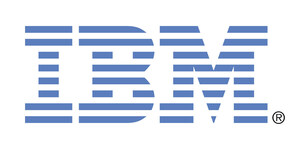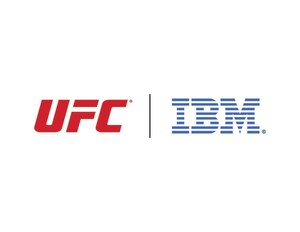ARMONK, N.Y., Aug. 25, 2016 /PRNewswire/ -- IBM (NYSE: IBM) today named the first five winners of the company's new IBM Health Corps grants, providing $2.5 million worth of public health-related pro bono consulting by some of IBM's most talented employees around the world over the next six months.
The first projects aim to increase the availability of chemotherapy medicines in sub Saharan Africa; better track and control Zika, dengue fever and other mosquito-borne diseases in Taiwan and Panama; foster more informed community health interventions in the Southeast United States; and increase access to diagnostic radiology in underserved countries.
Health Corps is IBM's latest example of pro bono consulting and technology services within the company's portfolio of problem solving initiatives. The program deploys cross-disciplinary teams of five to six top performing IBM employees -- all of whom spend one month in preparation -- to spend three weeks with civil sector and not-for-profit health organizations worldwide. While on location, the teams draw upon IBM's capabilities in data analytics, cognitive and cloud computing, mobile app development, Internet of Things, weather and health consulting to design strategies that help communities improve a given aspect of public health. The goal is to address disparities in healthcare access, improve services and increase impact.
After reviewing the entries of over 100 applicant organizations, IBM chose the following projects to support. The first, with the American Cancer Society, is scheduled to commence in September 2016:
American Cancer Society (ACS) - Currently, very few cancer patients in sub Saharan Africa receive chemotherapy, correlating with significantly lower cancer survival rates than in developed countries. IBM could provide support for the creation of a chemotherapy-forecasting tool that may allow ACS, ministries of health in Ethiopia, Nigeria and Uganda, and other global health partners to increase the availability and lower the cost of cancer treatments. Better data and predictive analytics in a chemotherapy forecasting tool may more precisely anticipate local needs and improve price negotiations with medicine suppliers.
Duke Health and Duke Center for Community & Population Health Improvement - Residents in greater Durham, North Carolina in the U.S. are committed to improving health for everyone in their community. IBM will work with Duke Health to establish a framework for an analytics platform that will help stakeholders from health, business, public, and other sectors share their health improvement efforts with each other and measure the impact of their efforts on community health.
Gorgas Memorial Institute, Panama - Panama has seen recent Zika and Chikungunya outbreaks, as well as the re-emergence of dengue fever, but lacks a real-time surveillance system for relaying timely information from field investigators to researchers, health officials and policy makers. IBM will design a mobile application to enable public health field investigators to collect and immediately send geo-located information on disease outbreaks and mosquito breeding sites to the Ministry of Health. This will likely facilitate more rapid and effective decision-making for infectious disease control.
RAD-AID - According to the World Health Organization, nearly half the world has little or no radiology services, contributing to challenges in the diagnosis and treatment of illnesses such as cancer and cardiovascular disease, and for prenatal care. IBM Health Corps will work with RAD-AID, a not-for-profit that provides medical imaging services and support for developing countries including Laos, Nicaragua, Ethiopia, Nepal, and Ghana. IBM will recommend a framework for increasing digital radiology capacity in RAD-AID's partner countries, including secure cloud-based storage of radiological scans. This will enable doctors to compare a patient's medical images over time, making more accurate and effective tracking and diagnosing of medical conditions more likely.
Taiwan Centers for Disease Control (CDC) - Dengue fever outbreaks have surged in Taiwan in the past two years and are expected to worsen in the coming years, according to the Taiwan CDC. IBM Health Corps will apply predictive analytics to identify regions at greater risk and help the Taiwan CDC to set priorities for dengue vaccination and mosquito control. IBM's model may use data from death registries, weather observations, climate projections, socio-economic studies and health insurance claims. This approach might also be used to track other mosquito borne diseases.
IBM had already completed three pilot Health Corps engagements before today's grants announcement. They provided proof of concept for the potential effectiveness of such projects. One of these was with Unity Health Care in Washington, D.C., one of the nation's largest Federally Qualified Health Centers, which provides healthcare to more than 100,000 Washington, D.C. residents in underserved neighborhoods. Unity wanted to integrate behavioral health into its primary care practices to boost quality of care, increase provider satisfaction and competence and reduce long-term costs. After receiving input from IBM Health Corps, Unity began piloting this integrated model at several of its sites. In less than one month of beginning the pilots, three behavioral health consultants have conducted over 100 patient encounters, offering more efficient access to mental health care on the same day that primary care is provided.
Additionally, during the Health Corps three-week engagement with Unity, IBM demonstrated the potential of Internet of Things technology to more accurately track patient and staff movement in the clinics, and provide different methods of scheduling patient appointments. These demonstrations showed how technology can increase the efficiency and effectiveness of care, while enabling staff to have even greater focus on patient care.
More information about these IBM Health Corps engagements, as well as more background about the goals of the program, can be found at ibmhealthcorps.org. For more information about IBM's philanthropic efforts, please visit www.ibm.com/ibm/responsibility and www.citizenIBM.com, or follow @CitizenIBM on Twitter.
Following are statements from IBM and recipients of IBM Health Corps grants:
"Globally, the public health community is on the brink of eliminating some of the most pressing health disparities of our day. We've heard from our partners that access to data, analytics, and cognitive computing is key to closing the gap. By contributing our IBM experts and technology to partner with these five visionary organizations, we believe that together we can transform health in our communities and across the world."
Jen Crozier
Vice President of Global Citizenship Initiatives
IBM
"Deepening our understanding of health disparities, and the factors that drive them, is a central objective of the Duke Center for Community and Population Health Improvement. We are eager to work with IBM's Health Corps on this project. Mapping current population health interventions will ultimately allow us to identify gaps, realize efficiencies and better define measured steps relevant sectors and stakeholders can take to improve population health."
Dr. Eugene Washington
Chancellor for Health Affairs at Duke University and President and CEO
Duke University Health System
"Our partnership with IBM Health Corps will create a powerful information-sharing pipeline between field investigators and policy makers to control Zika and other infectious diseases. As new health threats emerge, we will be ready to act."
Nestor Sosa, MD, FACP
Director General
Gorgas Memorial Institute for Health Studies
"RAD-AID and IBM Health Corps are collaborating to bridge the digital divide for addressing global health care disparities, in which radiology and medical imaging represent the leading edge of international health IT in developing countries, and RAD-AID is pleased to launch this initiative with IBM for bringing high technology health solutions to the medically underserved in low-resource regions via collaborative advancement of international radiology data architectures, medical image management and cognitive computing."
Daniel J. Mollura, MD
President and CEO
RAD-AID International
"We are excited about this collaboration opportunity with IBM Health Corps on this dengue modeling project, which could improve the capacity across Taiwan, Southeast Asia and beyond to tackle the burden of dengue. As dengue control is one of our top priorities this year, Taiwan CDC has already invested a tremendous amount of resources in dengue prevention and control, especially our surveillance system. With its expertise in data analytics and population health capabilities, IBM's support will definitely accelerate our work and potentially help close the gap in global disease detection and in fighting against the threat of emerging and re-emerging infectious diseases."
Jen-Hsiang Chuang, MD, PhD
Deputy Director General
Taiwan Centers for Disease Control
Contact(s) information
Angie Hu
IBM Media Relations
914-499-6532
[email protected]
Ari Fishkind
IBM Media Relations
1 (914) 499-6420
[email protected]
Logo - http://photos.prnewswire.com/prnh/20090416/IBMLOGO
SOURCE IBM
Related Links
WANT YOUR COMPANY'S NEWS FEATURED ON PRNEWSWIRE.COM?
Newsrooms &
Influencers
Digital Media
Outlets
Journalists
Opted In





Share this article